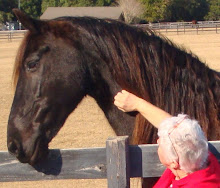
D and I have been friends for more than 30 years. She is opinionated, passionate, vocal, involved, and analytical. I am opinionated (but on the other hand), painfully passionate, sometimes vocal, occasionally involved, and intuitive. Needless to say, our friendship has been interesting – sometimes up, sometimes paused, but always faithful. We’ve been geographically apart except for occasional visits and telephone conversations for many years, but the anxiety that rises from our discussions is strong. She makes me think. I’m not sure what I do for her, but she’s said these discussions are difficult.
Still, we discuss. Still, we present our ideas in our words and our experiences. Still, we misunderstand. Still, we ask for clarification. Still we wrestle with issues that concern our lives, the nation, the world.
We are both liberals, both gay, both Episcopalians, and so on. We love good books although we differ in what we call a good book. We generally agree on the most important aspects of life – love (essential), faithfulness (expected), peace (one person at a time, one country at a time, one life at a time), hope (necessary for life), food (love it), health (struggling), exercise (not), and a host of other things. She is like the sister I never had, and I deeply honor, love and respect her.
However, our not being able to explain our thoughts/feelings in words that really make sense to the other is sometimes frustrating, but always rewarding. I don’t understand how we can agree on so many things and still need so much clarification about what we write to one another. Sometimes I have to read her sentences several times before I even grasp what she’s talking about. And, I wonder, did I really say that – but she quotes from my emails – yes, I really said that. Well, what did I mean when I said that? Was it a reflective comment based on much thought or was it an idle simile that seemed appropriate at the time?
If D and I can agree on basics and more than basics but still have difficulty making our views known to one another, how much more difficult it must be for those on opposing sides of any issue to explain themselves to the others. Perhaps they don’t even agree on the words their side is using even if they agree on the principles.
What I do know is that such discussions are essential, and they must be honest, open and frank. The people involved must respect one another and trust each other to some degree. In diversity seminars, we focus on similarities in order to get people to work together and live together in peace. Sometimes, we should focus on the differences that cannot be resolved in hopes that understanding and tolerance will occur.
Let us not kill one another over the meaning of the Love of God.

No comments:
Post a Comment